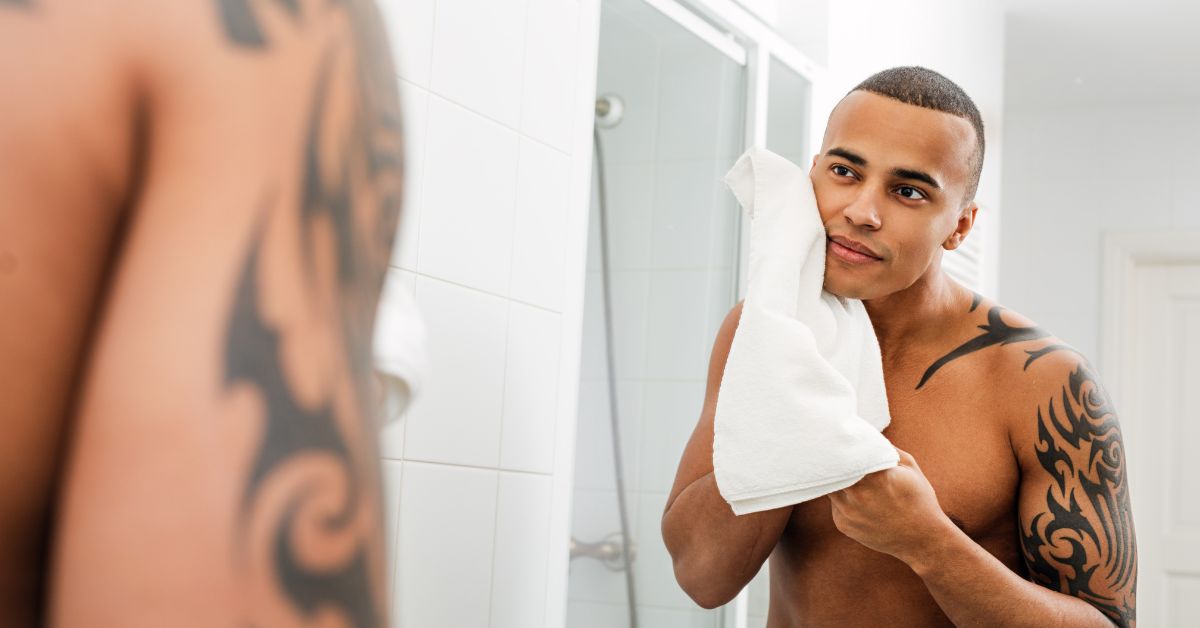
Forget the face scrubs made from oatmeal and questionable DIY concoctions. Guys, the secret weapon in your anti-aging arsenal might already be hiding in your weight room.
New research shows that building muscle might be the secret weapon you’ve been missing. A study published in Scientific Reports found that strength training could actually be more effective in reducing signs of aging than cardio, especially for your skin. While the study focused on women, the researchers believe the benefits hold true for men, too.
“We believe that there are the same effects in men because [the] skin rejuvenation mechanism is the same,” said Satoshi Fujita, Ph.D., the study’s lead author and an exercise scientist at Ritsumeikan University in Kyoto, Japan.
Exercise and its impact on skin health

Fujita’s team asked 56 sedentary middle-aged Japanese women to participate in a 16-week strength training program for the study. Half of the participants were instructed to ride a bike for 30 minutes twice a week, while the other half concentrated on strength training exercises like weight lifting.
Before the participants started the program, researchers checked their skin for wrinkles, elasticity, and collagen levels. After the program, they took another look.
The results were clear: weightlifting and cycling firmed up their skin, making it more elastic (think bouncing back after a smile). Plus, these exercises helped increase collagen production, a key protein for keeping skin looking youthful.
There was one bonus perk for the weightlifting crew, though. Their skin actually got thicker compared to the cycling group. According to Fujita, this thicker skin can help prevent sagging and those pesky age spots, keeping you looking younger for longer.
“Our results suggested that resistance exercise had a more positive effect on the skin than aerobic exercise,” Fujita told Health.
Although the exact science behind why strength training benefits the skin is not fully understood, researchers speculate that it may be due to decreased blood inflammatory factors.
Takeaway
So, what’s the takeaway? Cardio’s still good for you, but if you’re looking to give your skin a real boost, strength training might be the way to go. And the good news is, it doesn’t matter what muscles you work on — your whole body will benefit!
It’s a good idea to consider this advice as an addition to your routine rather than the ultimate solution. According to David Sawcer, a clinical associate professor of dermatology at the Keck School of Medicine at the University of Southern California in Los Angeles, “I don’t think they [the findings] mean anything definitive.” However, he added that they seem “reasonable.”
But just because you’re working out more doesn’t mean you should neglect your skin. Sunscreen is essential whenever you’re outdoors, and staying hydrated is crucial. Smoking? It’s best to avoid it altogether. Other skincare tips include washing your face regularly, moisturizing daily, and eating a balanced diet rich in fruits and veggies.



